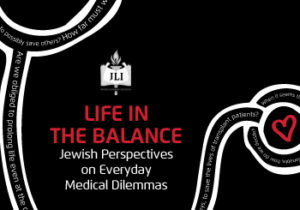Dave, a frequent business traveler, was recently in Atlantic City for an important meeting with clients. Afterward, he had some time to kill before his flight, so he went to a local bar for a drink.
He’d just finished one drink when a woman approached and asked if she could buy him another. He was surprised but flattered. Sure, he said. The woman walked to the bar and brought back two more drinks—one for her and one for him. He thanked her and took a sip. And that was the last thing he remembered.
Rather, that was the last thing he remembered until he woke up, disoriented, lying in a hotel bathtub, his body submerged in ice.
He looked around frantically, trying to figure out where he was and how he got there. Then he spotted the note:
DON’T MOVE. CALL 911.
A cell phone rested on a small table beside the bathtub. He picked it up  and called 911, his fingers numb and clumsy from the ice. The operator seemed oddly familiar with his situation. She said, “Sir, I want you to reach behind you, slowly and carefully. Is there a tube protruding from your lower back?”
and called 911, his fingers numb and clumsy from the ice. The operator seemed oddly familiar with his situation. She said, “Sir, I want you to reach behind you, slowly and carefully. Is there a tube protruding from your lower back?”
Anxious, he felt around behind him. Sure enough, there was a tube.
The operator said, “Sir, don’t panic, but one of your kidneys has been harvested. There’s a ring of organ thieves operating in this city, and they got to you. Paramedics are on their way. Don’t move until they arrive.”
****
This widely circulated urban legend brings to light the dangers of legalizing the sale of organs.
Doreen Flynn has three daughters who suffer from a blood disorder that requires a bone marrow transplant. Last year, Flynn challenged the National Organ Transplant Act, which forbids compensating an organ or bone marrow donor, and sought to have the right to pay donors for the bone marrow needed for her daughters. The U.S. Court of Appeals for the Ninth Circuit has recently agreed with her claim.
Should the sale of bone marrow be legal? What about the sale of kidneys? Currently, prospects for those in need of organ transplants are grim. For every 100,000 transplants needed each year, only 10,000 are performed. Permitting the sale of organs might significantly increase the number of organs available for transplant, potentially saving many thousands of lives.
But do we want to live in a society in which people are selling body parts? Does that undermine human dignity? Some argue that if a market in organs were to develop, ability to pay would determine who would have access to organs, while economic need would determine who would be motivated to sell theirs.
Should we promote the great lifesaving potential by legalizing the compensation of organ donors? Or should we be wary of its implications regarding human dignity and equity? Is there perhaps a balance or some viable form of regulation that would satisfy our conflicting moral values?
What do you think?
Join us this October for Life in the Balance: Jewish Perspectives on Everyday Medical Dilemmas where we’ll discuss this issue and other fascinating discussions.
Visit www.spchabad.com/jli today to register.

